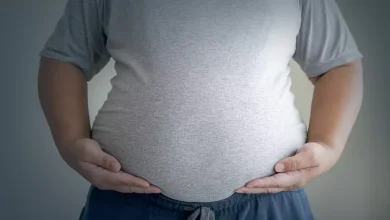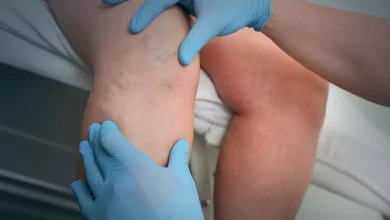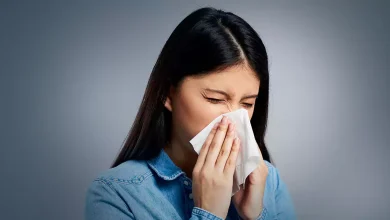All about Diarrhea

What is Diarrhea?
Diarrhea makes your stool loose and watery and it goes away on its own in some days. Diarrhea is caused by bacteria. This is a very common condition and usually resolves without treatment. Diarrhea can happen for an array of reasons and it generally goes away on its own in one to three days. When you have diarrhea, you lose water and electrolytes along with stool so it’s very important to keep yourself hydrated.
What are the Types of Diarrhea?
There are three types of diarrhea:
- Acute diarrhea: It is a common type of acute diarrhea that lasts one to two days. This type of diarrhea doesn’t need treatment and it generally goes away in a few days.
- Persistent diarrhea: This type of diarrhea generally persists for several weeks – two to four weeks.
- Chronic diarrhea: Diarrhea that lasts for more than four weeks or comes and goes regularly over a long period of time is called chronic diarrhea.

What are the Symptoms of Diarrhoea?
The symptoms of mild diarrhea include:
- Bloating or cramps in the abdomen.
- A strong and urgent need to have a bowel movement.
- Stomach upset
- Watery stool
In case of severe diarrhea, you may experience symptoms like:
- Fever.
- Weight loss.
- Dehydration.
- Severe pain.
- Vomiting.
- Blood in stool
What are the Causes of Diarrhea?
There are various causes of diarrhea including:
- The most common cause of diarrhea is a virus that infects your bowel
- Bacterial infection.
- Infections caused by other organisms and pre-formed toxins
- Eating foods that adversely affect the digestive system.
- Allergies and intolerances to some foods like Celiac diseaseor lactose intolerance.
- Some medications like antibiotics can cause diarrhea.
- Radiation therapy.
- Malabsorption of food (poor absorption).

What are the Risk Factors for Diarrhea?
Risk factors of diarrhea include:
- Viruses
- Bacteria and parasites
- Medications
- Lactose intolerance
- Fructose
- Artificial sweeteners
- Surgery
- Food poisoning
- Genetics
- Food hygiene
- Other digestive disorders
What are the Complications of Diarrhea?
Diarrhea may lead to dehydration, which can be fatal if not treated properly. Dehydration is most dangerous in children, older adults, and people with weakened immune systems. It’s vital to drink adequate fluids with electrolytes when you have diarrhea. This permits your body to replace the fluid and electrolytes that are lost with diarrhea.
If you have diarrhea that fails to improve on its own in two-three days, you should consult a doctor who after checking your condition, guides you for further treatment. Keep track of any other symptoms you may be experiencing like fever, vomiting, rash, weakness, numbness, lightheadedness, dizziness, weight loss, and blood in your stool.
Along with dehydration, another serious complication of diarrhea is malabsorption (in the case of chronic diarrhea). Malabsorption is a condition that arises when you are not able to get nutrients like carbohydrates, fats, minerals, proteins, or vitamins from your diet.
Malabsorption usually happens when you do not have enough digestive enzymes, bacteria, etc., or the movement in your small or large intestine is faster than usual.
How Diarrhea is Diagnosed?
To diagnose diarrhea your doctor will ask you about the symptoms you are experiencing along with checking your medical history and may ask you to go for a few tests such as:
- Blood Test: A complete blood count test is taken to measure electrolytes and kidney function in your body which can help to check the severity of your diarrhea.
- Stool Test: A stool test is conducted to see if a bacterium or parasite is causing your diarrhea.
- Hydrogen breath test: This type of test helps to detect if you are lactose intolerant. You are given to drink a liquid that contains high levels of lactose, and the doctor measures the amount of hydrogen in your breath at fixed intervals. Breathing out too much hydrogen indicates that you aren’t wholly digesting and absorbing lactose.
- Flexible Sigmoidoscopy or Colonoscopy: In this test, a thin, lighted tube is inserted in your rectum to see inside your colon and take a small sample of tissue (biopsy) from your colon to test in the laboratory. Flexible sigmoidoscopy gives a view of the lower colon, while colonoscopy lets the doctor see the entire colon.
- Upper Endoscopy: Here a long, thin tube with a camera on the end is used to check your stomach and upper small intestine. They may remove a tissue sample (biopsy) for analysis in the laboratory.
What are the Treatment Options Available for Diarrhea?
Normally diarrhea goes away by itself in two-three days but if the condition remains persistent for a week or more, you should consult a doctor who may prescribe you a few treatments including:
- Antibiotics: If most cases an antibiotic is prescribed by doctors to treat an infection or parasite that’s causing diarrhea.
- Medication for a Specific Condition: Diarrhea can be a signal of various other medical conditions, like irritable bowel syndrome (IBS), inflammatory bowel disease (IBD) including Crohn’s disease and ulcerative colitis, microscopic colitis, or bacterial overgrowth. Once the cause of the diarrhea is known, your doctor prescribes medications accordingly.
- Probiotics: Groupings of good bacteria, probiotics are occasionally given to re-establish a healthy biome to fight diarrhea. Probiotics can be useful in sometimes to treat severe diarrhea and doctors feel that it’s worth a try. You should always talk to your doctor before starting a probiotic or any kind of supplement to treat diarrhea.
Living with Diarrhea
Diarrhea is a common disease that most people get at least once in a few years and rarely this condition is life-threatening. Most of the time it goes away in two-three days by itself. During diarrhea, you may feel stomach ache and need to go toilet to pass stool in regular intervals which can be tiresome. You should take care of what you eat if you are suffering from diarrhea and your doctor can advise you about what to eat and what foods to avoid. If your condition is not cured in some days, consult a doctor who may prescribe you some medicines after checking the severity of the diarrhea. It’s important to keep yourself dehydrated and drink plenty of water and other electrolyte-balanced fluids and pulp-free fruit juices to ease the symptoms of diarrhea.
Whom to Consult?
Symptoms of diarrhea include rash, weakness, numbness, lightheadedness, dizziness, weight loss, and blood in your stool. If you have diarrhea that fails to improve or resolve completely, you should call your doctor as normally diarrhea goes away in two-three days.




